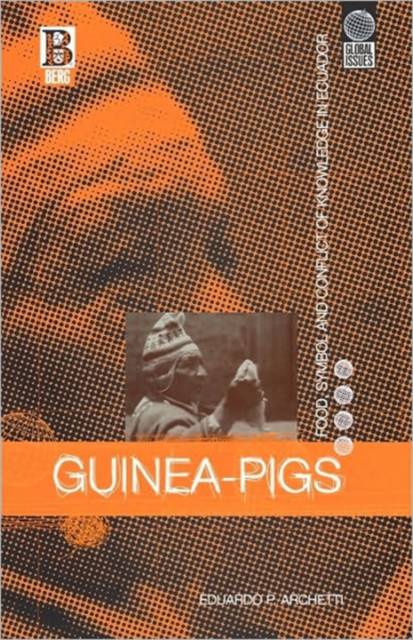
- Retrait gratuit dans votre magasin Club
- 7.000.000 titres dans notre catalogue
- Payer en toute sécurité
- Toujours un magasin près de chez vous
- Retrait gratuit dans votre magasin Club
- 7.000.0000 titres dans notre catalogue
- Payer en toute sécurité
- Toujours un magasin près de chez vous
74,95 €
+ 149 points
Format
Description
Guinea pigs have been reared and eaten by indigenous people in the Andes since ancient times, and it seemed rational to development planners to 'modernize' their production. When these development projects ran into trouble, a team of anthropologists was invited to study the reasons for this lack of success. This intriguing book is the product of that study.What the author shows is that guinea pigs have a meaning in the social and ritual life of Ecuadorian peasants which is far from mundane. Rejecting the attempts of some anthropologists to reduce the production of guinea pigs and the festive life of the Andean community to a quest for protein, he explores the full complex of social and cultural practices which centre on this animal, and uses his study of its role within Andean culture to provide telling insights into how that culture itself is constituted -- its values, beliefs and attitudes. By working in a variety of communities with different ecological and ethnographic characteristics, the author has made a major contribution to ethnographic accounts of Ecuador and to the more general study of ritual, consumption and indigenous knowledge. He points us, in particular, towards the importance of the knowledge of women, who are those principally responsible for the care of an animal which is prized for its role in healing and central to Andean sociality. The book not only presents us with a colourful description of the range of cultural practices surrounding the guinea pig, ranging from the way the animals are reared, through a rich and complex cuisine, to their role in ritual life, but also highlights the way the gender dimension is central to understanding resistances to 'modernization' and the power of 'experts'.
Spécifications
Parties prenantes
- Auteur(s) :
- Editeur:
Contenu
- Nombre de pages :
- 162
- Langue:
- Anglais
- Collection :
Caractéristiques
- EAN:
- 9781859731192
- Date de parution :
- 01-09-01
- Format:
- Livre broché
- Format numérique:
- Trade paperback (VS)
- Dimensions :
- 139 mm x 214 mm
- Poids :
- 213 g

Les avis
Nous publions uniquement les avis qui respectent les conditions requises. Consultez nos conditions pour les avis.






